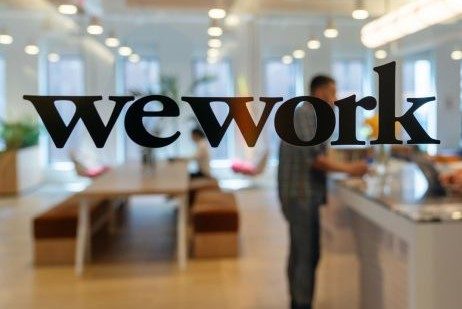His company, Cardinal Capital, has property funds that have helped finance 8,000 housing units – 4,000 are completed with 4,000 more in process through to planning. The firm has also worked on financing over 1.5 million sq ft of offices, 2.6 million sq ft of retail, and over 1,000 hotel rooms.
That is what made his insights to Tom last week so interesting when he outlined why the firm had focused on residential property as opposed to commercial.
“We took a view, once we’d exited Fund One, not to continue financing the commercial market,” Corcoran told Tom.
“It made complete sense in Fund One, because we had the net deficit in commercial real estate availability in the country emerging from 2014/2015, whereas when we were looking at this in respect of our second fund, the significant shortage from an infrastructural perspective was around housing, so that’s where we are now focused.”
Corcoran seems to be right in several respects. For a start, Ireland needs more houses, something that is driving residential prices upwards. But, also, there is a softness to the commercial property market that is increasingly troubling – and will prove to be more troubling over the coming years.
The issues surrounding WeWork are a case in point. The company has lost a cumulative $16.8 billion since it was set up.
It is essentially a busted flush. The basic business model of buying long term commitments (leases) and selling short term memberships was bound to fail. It looks good on paper but the execution, and dependence on market conditions, is the problem. Just ask the banks who relied on interbank lending to finance their loan books before the financial crisis – it is the same basic problem.
The share price of the short-term office space provider Regus, has fallen considerably since its peak in 2019 but it has since stabilised.
It will take some time to figure out what WeWork’s problems will have on the Irish commercial property market. Most of its landlords are blue chip behemoths. As Sean put it last week:
“WeWork’s Dublin landlords are the American investor Hines, at its One Central Plaza location; the Korean investor Vestas, at its Charlemont location; The Luxembourg-based investor REInvest at Harcourt Street; and the Korean investor JR AMC at 2 Dublin Landings.”
However, its very public issues are reinforcing a growing concern about the commercial property market, something that has been highlighted by the Central Bank recently.
“Amid the rapid tightening of monetary policy, global commercial real estate markets are particularly vulnerable due to concerns over stretched valuations and the increase in non-bank and international financing of the sector,” the Central Bank noted in its latest Financial Stability Review.
The bank added: “The sector is facing both cyclical headwinds, due to rising interest rates, as well as structural challenges, including the growth in home working affecting the office segment. Furthermore, increasing synchronisation in global real estate market valuations, partially due to non-bank and international financing of real estate investment, has raised concerns about the vulnerability of these markets to external or regional shocks.”
The bank is not alone in its pessimism. Myles O’Grady, the chief executive of Bank of Ireland, described it as an “area of some concern”. He also warned that the office segment is one to particularly watch.
Bank of Ireland is forecasting that commercial real estate prices could drop by 6 per cent this year and an additional 2.5 per cent next year in the most probable scenario. However, in the worst case scenario it says it could be as much as 4.5 per cent this year and 8.5 per cent next year.
Colin Hunt, the AIB boss, is equally pessimistic. “I think that a valuation challenge may well be ahead for the sector, but I don’t expect material impairments on foot of it,” he says. Two weeks ago, AIB’s CFO Donal Galvin said “covenant breaches are going to be an inevitability” on commercial property loans.
Look at the noises from UK commercial property firm Hammerson. It owns the Dundrum Town Centre, Swords Pavilions, Kildare Village and Dublin’s Ilac Centre. In recent weeks, it has revalued its Irish assets downwards by £20 million.
As the Central Bank puts it: “Rising funding costs and uncertainty, tightening credit standards, increased interconnectedness due to the rise of international institutional investors, and weaker growth prospects are all putting downward pressure on global CRE market prices.”
It’s a global problem. Huge US commercial property funds like the KKR Real Estate Finance Trust and the Starwood Property Trust have stopped loans to new borrowers. These funds are publicly traded, so they rely on stock market investors for much of their funding. But the share prices of the funds have fallen sharply, so the funds can’t access that funding source any more.
Three and a half years after office workers were sent to work from home for the first time, commercial property’s problems are not going away. Worse may be to come.
*****
Elsewhere last week, Tom caught up with Conor O’Callaghan. His grandfather was a famous Lieutenant General in the Irish army who served the UN in the Middle East. A family commitment to public service inspired him to try and enter US politics – he told Tom why he is now running for Congress in the US.
The Criminal Assets Bureau seized 112 cars and froze millions of euro in the pursuit of a car dealership it claimed to be “an engine of fraud, fuelled by money-laundering”. Rosanna had the story.
In its interim results, Flutter made more revenue and more profit than the market expected. Yet the shares fell. Sometimes higher than expected profit is bad news. Sean had insightful analysis.
The Irish video games services firm Keyword Studios is a mainstay in the industry and a frequent shopper, scooping up several smaller companies. But its profile and reach is starting to evolve.


